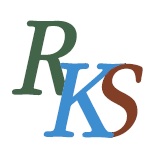Building a New Nation: Chooyang, Han Gyeongjik and His Ideological Influence in Making Modern Korea
Abstract
Chooyang, Han Gyeongjik was one of the most outstanding pastors in the history of the Korean Protestant Church. He was a famously known clergyman not only as a founder of the renowned “Youngrak Presbyterian Church,” but also as an organizer for building up modern “Republic of Korea” by participating in the U.S. military Government (Sep. 1945-Aug. 1948), right after the “Independence” from Japanese colonialism, and the 1st to 3rd Administrations of the Republic of Korea (Aug. 1948-Oct. 1972). From time to time, his argumentation, the so-called “New nation under the Christian belief,” raised hot controversial debates on the relationship between politics and religion. However, his main ideas for building up a new nation gave much influence to seek an appropriate political ethics in the “newly- born country.” The writer discusses the ideas of Chooyang, concerning the “building a new nation” through his address, sermons, books, and interviews at first. How were his ideas on the political practice reflected in the living political world? What was a limitation of his ideological suggestions in a real political formation? In what scope and extent, was his assertion adopted? Through these discussions, we could come to have a more concrete understanding on the “Establishment of a Christian Nation for Modern Korea.”
- keywords
- building a nation, anti-communism, Christian nation, sinful nature of human being, liberal democracy, church and state
참고문헌
Anthony, S. (1999), Myths and Memory of Nation. Oxford: Oxford University Press.
Baker, Donald, ed. (2014), Critical Readings on Christianity in Korea. Leiden:Brill.
De Cellia, R., M. Reisigl., and R. Wodak. (1999), “The Discursive Construction of National Identities,” Discourse & Society 10 (2), 49-73.
Eckert, Carter., Kibaik Lee., Young Ick Lew., Michael Robinson., and Edward Wagner. (1990), Korea Old and New: A History. Cambridge: Korea Institute, Harvard University.
Gang, Incheol 강인철., and Myeongsu Park , 박명수. (2009), “Daehanminguk chodae jeongbu ui gidokkyo jeok seonggyeok” [The Christian Character of the First Government of the Republic of Korea]. Hanguk Gidokkyo wa yeoksa [Korean Christianity and History] 30, 91-129.
Gellner, Ernest. (1983), Nations and Nationalism. Ithaca: Cornell University Press.
Gidokkyomunsa, ed. (1987), Han Gyeongjik moksa seolgyo jeonjip [Anthology of Sermons by Rev. Han]. 2 vols. Seoul: Gidokkyomunsa.
Gweon, Gyusik 권규식. (1993), “Hanguk jonggyowa sahoe byeondongeui terkseong yeongu” [Characteristics of Korean Religious Groups and Social Changes]. In Hyeondae hanguk jonggyo byundong yeongu [A Study on Changes of Contemporary Korean Religions], edited by The Academy of Korean Studies, 1-72. Seoul: Geumyeong Munhwasa.
Hadenius, Alex. (1992), Democracy and Development. Cambridge: Cambridge University Press.
Hahm, Chaibong 함재봉, ed. (2011), Consolidation of Democracy in South Korea. Seongnam: The Academy of Korean Studies Press.
Han, Gyeongjik 한경직. (1949), Geonguk gwa gidokkyo [Christianity and Nationbuilding]. Seoul: Gimunsa.
Han, Gyeongjik 한경직. (1956), Gidokkyo ran mueosin ga [What is Christianity?]. Seoul: The Department of Evangelism at Yeongrak Church.
Han, Gyeongjik 한경직. (1960), Sinja ui sahoe jeok samyeong [Social Responsibility of Believers]. Seoul: Gimunsa.
Han, Gyeongjik 한경직. (1968), Minju gukka ui jeongsin jeok gicho [The Spiritual Foundation of a Democratic Nation]. Seoul: Christian Publisher.
Han, Gyeongjik 한경직. (1988), Seongseo jeok aeguksim [Biblical Patriotism]. Seoul: Yemok Publisher.
Han, Gyeongjik 한경직. (1992), Templeton sang susang yeonseolmun [Rev. Han’s Templeton Acceptance Speech]. Seoul: The Department of Evangelism at Yeongrak Church.
Han, Gyeongjik 한경직. (2008), Gidokkyo ran mueosin ga [What is Christianity?], 2nd ed. Seoul:Korea.com.
Han, Gyeongjik 한경직. (2009), Han Gyeongjik Moksa seolgyo jeon jip [The Homily of Rev. Han]. Seoul: The Rev. Gyeongjik Han Memorial Foundation.
Han, Gyeongjik 한경직. (2010), Han gyeongjik moksa ui sisa seolgyo moeum jip [Anthology of Rev. Han’s Sermon Discussing Current Events]. Seoul: Duranno.
Jo, Seonggi 조성기. (2003), Han Gyeongjik pyeongjoen [A Critical Biography of Rev. Han Gyeongjik]. Seoul: Gimyeongsa.
Kim, Andrew. (1995), “A History of Christianity in Korea: From Its Troubled Beginning to Its Contemporary Success,” Korea Journal 35 (2), 34-53.
Kim, Eungho 김응호. (2001), Chuyang Han Gyeongjik moksa [On Rev. Han Gyeongjik]. Seoul: Mogyangsa.
Kim, Kirsteen. (2010), “Christianity’s Role in the Modernization and Revitalization of Korean Society in the Twentieth-Century,” International Journal of Theology 4, 212-36.
Lee, HyeJeong 이혜정. (2011), Han Gyeonjik ui gidokgyo geongukron [Rev. Han Gyeongjik’s Christianity and Nationbuilding]. Seoul: The Christian Literature Society of Korea.
Mason, Edward S. (1980), The Economic and Social Modernization of the Republic of Korea. Cambridge: Harvard University Press.
Michnik, Adam. (1993), The Church and the Left. Chicago: University of Chicago Press.
Moffett, Samuel. (1962), The Christians of Korea. New York: The Friendship Press.
Park, Albert L., and David K. Yoo, eds. (2013), Encountering Modernity:Christianity in East Asia and Asian America. Honolulu: University of Hawaii Press.
Park, Myungsoo 박명수. (2015), Han GyeongJik gwa Daehanminguk Geonguk Undong: 1945-1948 Han Gyeongjik moksawa Hangukgyohoe [Han Gyeongjik and the Nationbuilding Movement of the Republic of Korea:1945-1948, Rev. Han Gyeongjik and the Korean Churches]. Seoul: The Christian Literature Society of Korea. Rev.
Han Gyeongjik Centenary Memoral Society 한경직 목사탄신 100주년 기념사업회, ed. (2002), PyungSaengae deutdun malsseum [Sermon that We Hear during his life-time]. Seoul: Sun Media.
Shin, Doh C. (1999), Mass Politics and Culture in Democratizing Korea. Cambridge: Cambridge University Press.
Sutherland, Claire. (2012), Nationalism in the Twenty-First Century: Challenges and Responses. New York: Palgrave Macmillan.
Wasson, Alfred W. (1934), Church Growth in Korea. New York: International Missionary Council.
Weems, Benjamin B. (1964), Reform, Rebellion, and the Heavenly Way. Tucson, AZ: University of Arizona Press.
Yun, Seungyoung 윤승용. (1997), Hyeondae Hanguk Jonggyo munhwa eui Ihae [Understanding the Religious Culture of Contemporary Korea]. Seoul:Haul Publishing.
- 다운로드 수
- 조회수
- 0KCI 피인용수
- 0WOS 피인용수


